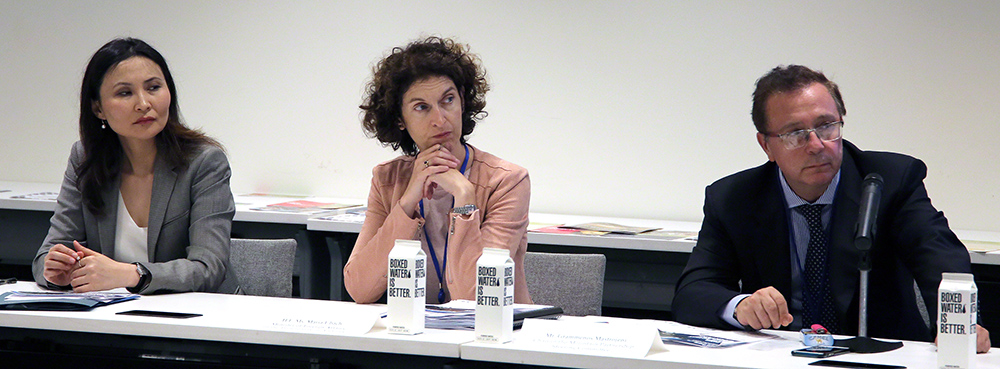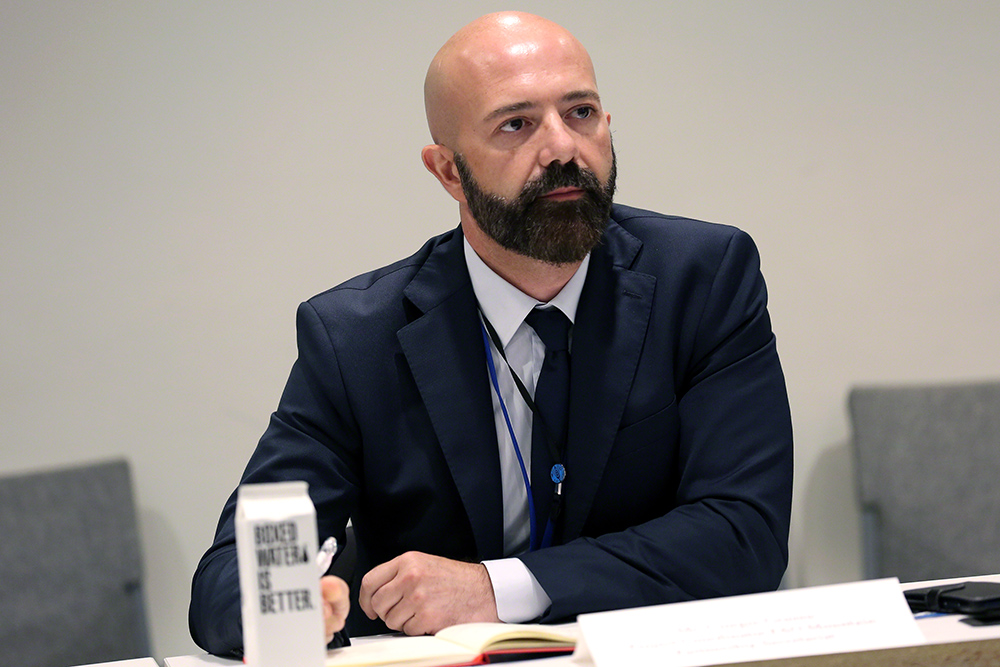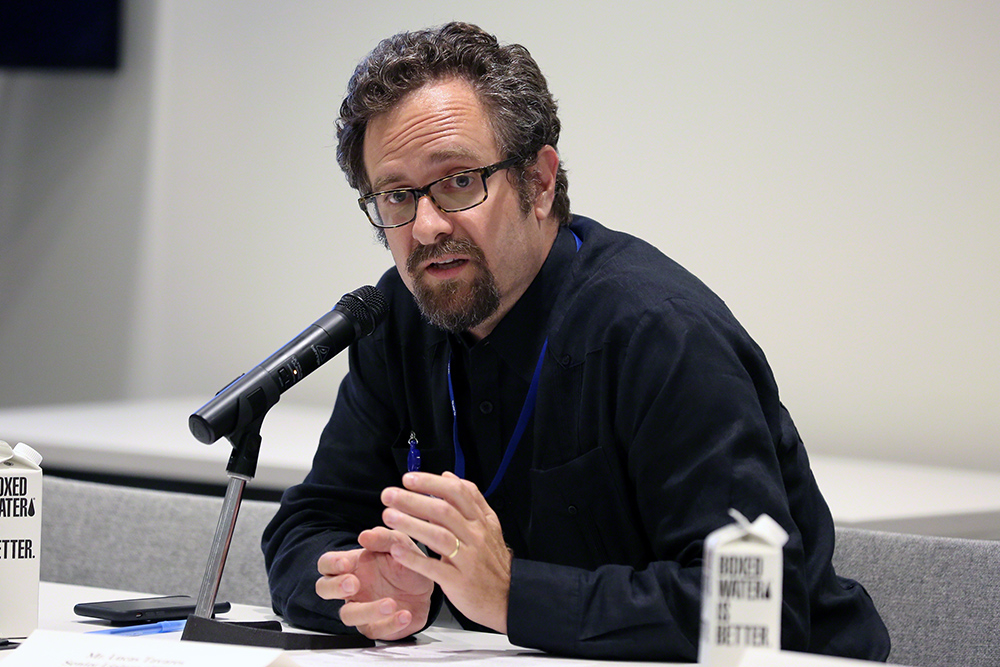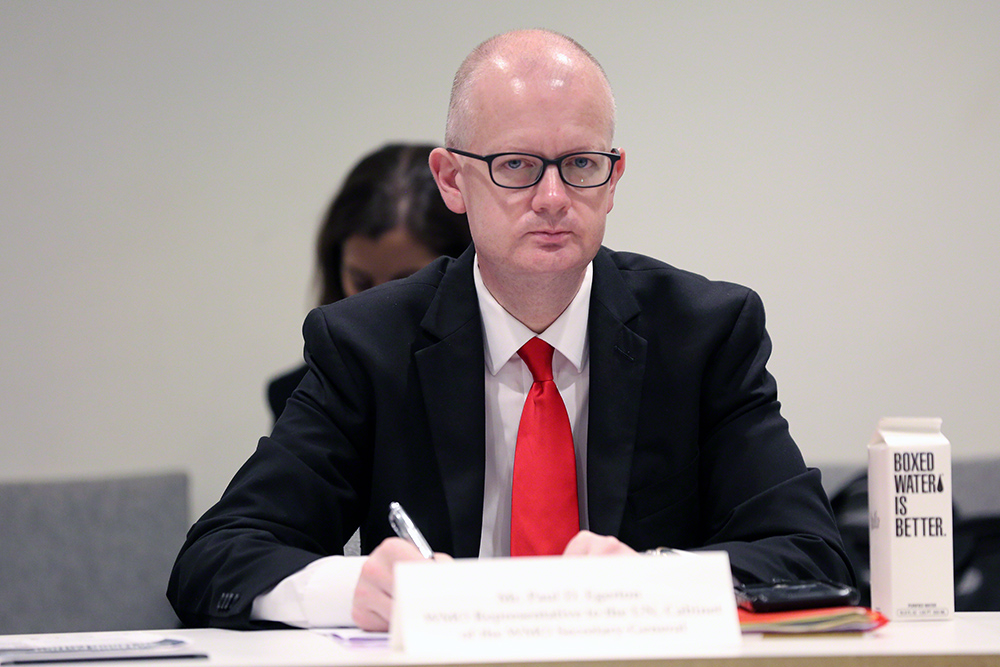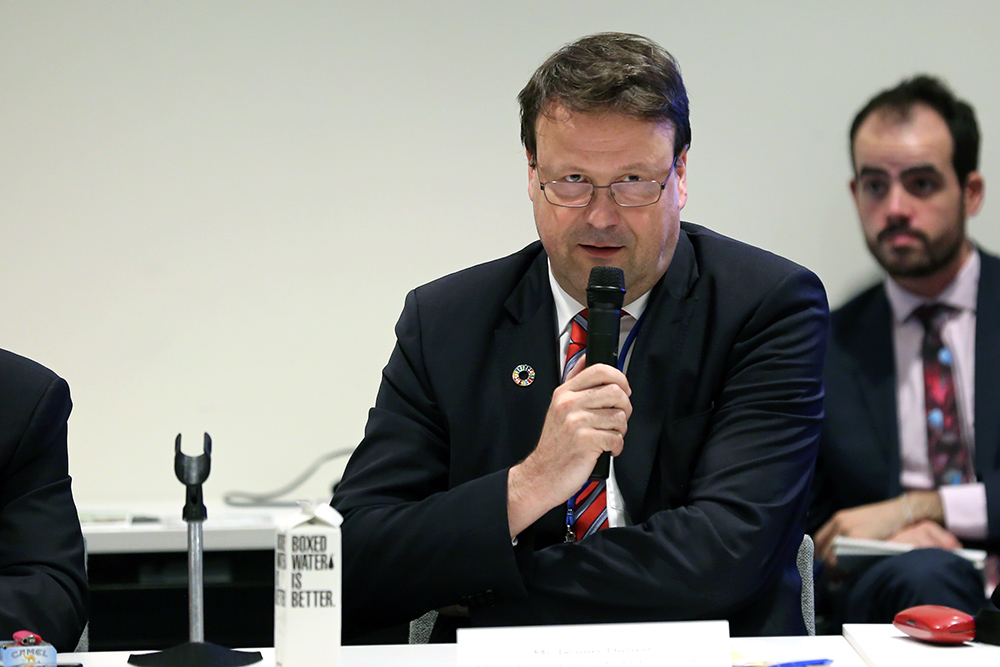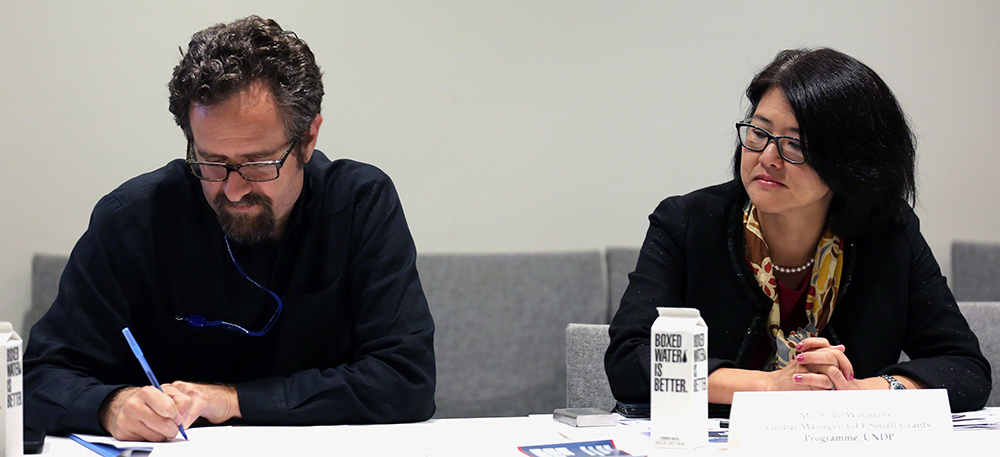Summary
Events Covered on Tuesday, 16 July 2019
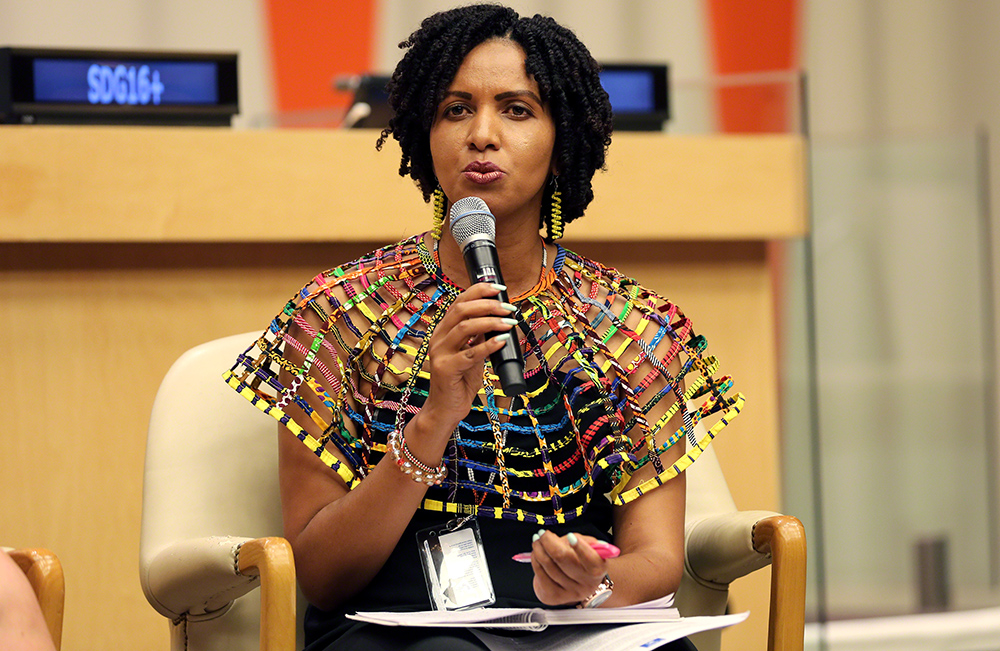
 The following events were covered by IISD Reporting Services on Tuesday, 16 July 2019:
The following events were covered by IISD Reporting Services on Tuesday, 16 July 2019:
Photos by IISD/ENB | Mike Muzurakis
For photo reprint permissions, please follow instructions at our Attribution Regulations for Meeting Photo Usage Page
SDG 16+ and the Future We Want
Presented by the Permanent Mission of the United Kingdom to the UN in partnership with the Sixteen Plus Forum (16+ Forum); the Global Alliance; the Pathfinders; LexisNexis; and the Transparency, Accountability, and Participation (TAP) Network.
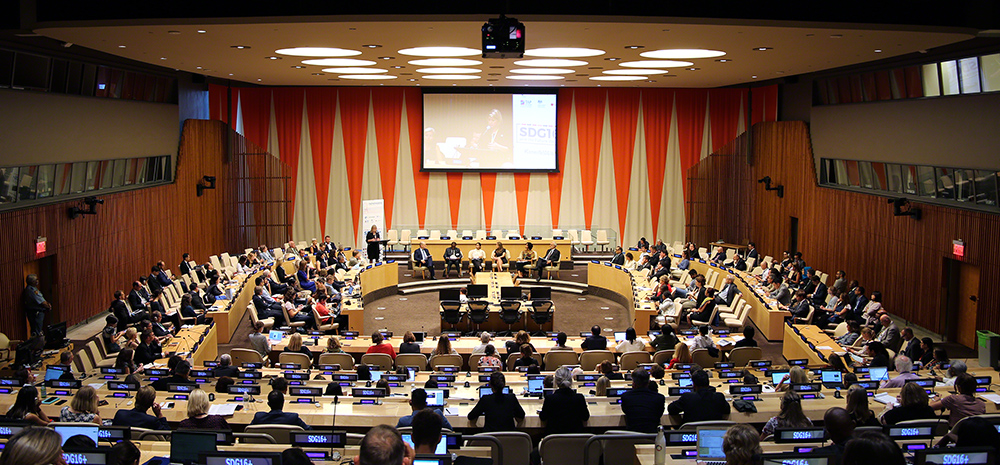
Key messages:
- The Sustainable Development Goal (SDG) 16 promotes: peace; inclusiveness; access to justice; and effective and accountable institutions at all levels;
- SDG 16+ extends SDG 16 to reflect interlinkages with other SDGs by combining the original SDG 16 targets with an additional 24 targets from other SDGs, taking the total number of targets to 36;
- SDG 16+ targets draw attention to the needs of people, communities, and societies that face the greatest risk of being left behind due to violence, injustice, exclusion, and poor governance; and
- It is essential to galvanize political will and forward-looking, as well as multi-stakeholder commitments to accelerate SDG 16+ implementation in the next four-year cycle of the 2030 Agenda.
The objective of this side event was to highlight the importance of SDG 16+ and its interlinkages to all SDGs, as well as to demonstrate how it enables the implementation of the UN 2030 Agenda for Sustainable Development. The event also celebrated successful national experiences of SDG 16+ in action, as highlighted in the Voluntary National Reviews (VNRs).
Event summary:
Moderating the event Mark Thompson, The New York Times, drew attention to the relationship between the SDGs and journalism, noting current challenges for safe journalism and press freedom.
In the opening remarks, Elizabeth Grace Sugg, Parliamentary Under-Secretary of State for International Development, United Kingdom, recognized current challenges to: reduce violence and obtain peace; promote access to justice; and obtain strong institutions. Acknowledging the need to leave no one behind, she underlined difficulties journalists and civil society face to promote SDGs, calling for the strengthening of partnerships.
Francis Kai-Kai, Minister of Planning and Economic Development, Sierra Leone, explained achievements and obstacles for the promotion of SDG 16 in Sierra Leone highlighting that “no justice for the poor means no peace for the rich.” He emphasized that SDG 16 is taken very seriously, exemplifying that his country’s VNR focused on the deliverance of education (SDG 4) and justice (SDG 16).
Lynrose Genon, UN Development Programme (UNDP) 16x16 Initiative, shared her experience as a young leader and highlighted key barriers youth networks face to implement SDGs on the ground, such as the lack of : access to youth funding; SDGs knowledge diffusion; and feasibility for youth participation in VNR.
Kim Haviv, White & Case Law Firm, underlined the role of the private sector for putting SDG 16 into practice by stimulating competition and the establishment of relationships that encourage forward thinking. She said private sector’s involvement goes beyond “self-protection,” noting that “business calculates risks, but also takes risks.”
Florence Syevuo, SDG Kenya Forum, underscored the strength of civil society to make the voices of marginalized groups be heard, noting that SDG 16 is one of the most critical SDGs and should be reviewed every year along with SDG 17 (partnerships).
Marcos Bonturi, Organisation for Economic Co-operation and Development (OECD), explained that an estimated five billion people do not have access to justice, sharing information on the model legal survey adopted by OECD to help policy makers to understand legal problems and justice systems.
In the ensuing discussion, participants asked for suggestions to further engage the private sector and a panelist recalled the need to start by reinforcing relationships that pair up with local needs.
During the concluding remarks, Mourad Wahba, UNDP, recognized the importance of SDG 16 and of civil society participation. He called for more optimism in addressing SDG 16 by enhancing investment for more responsive institutions that support civil society and create partnerships, including with youth organizations.
Event conclusions:
By promoting the dialogue between different stakeholders, this side event demonstrated that to create the future we want it is necessary to act together and showcase what works to achieve progress on SDG 16+ at all levels. Committed to continue the promotion of SDG 16+ at the SDG Summit 2019, which will take place in September 2019, participants agreed that political will for investment in evidence-based actions and empowerment of all, including youth, is crucial to accelerate progress on SDG 16+ and all other SDGs.
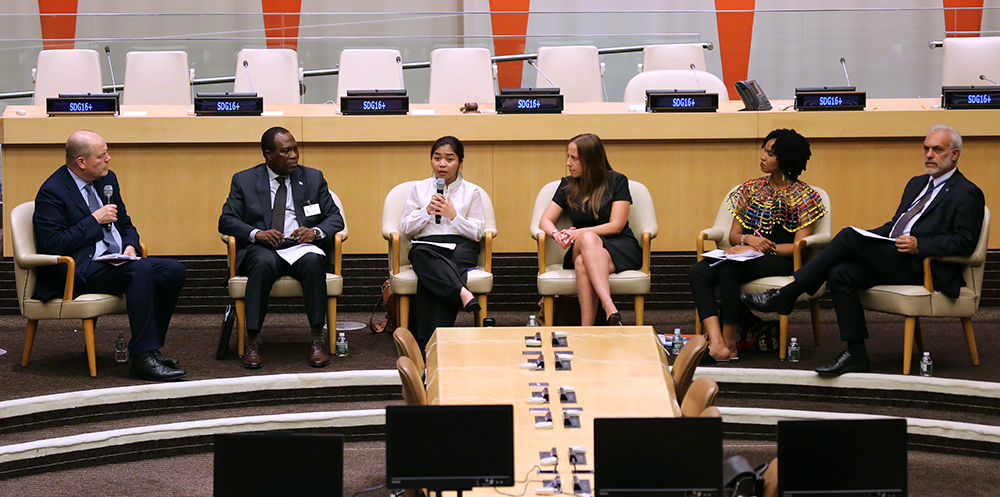
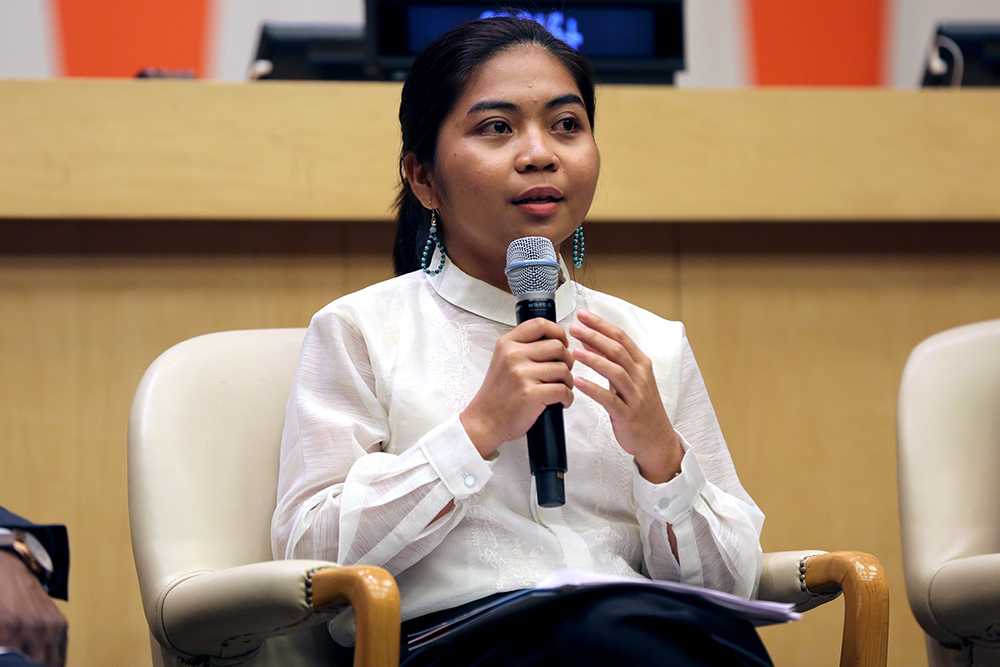
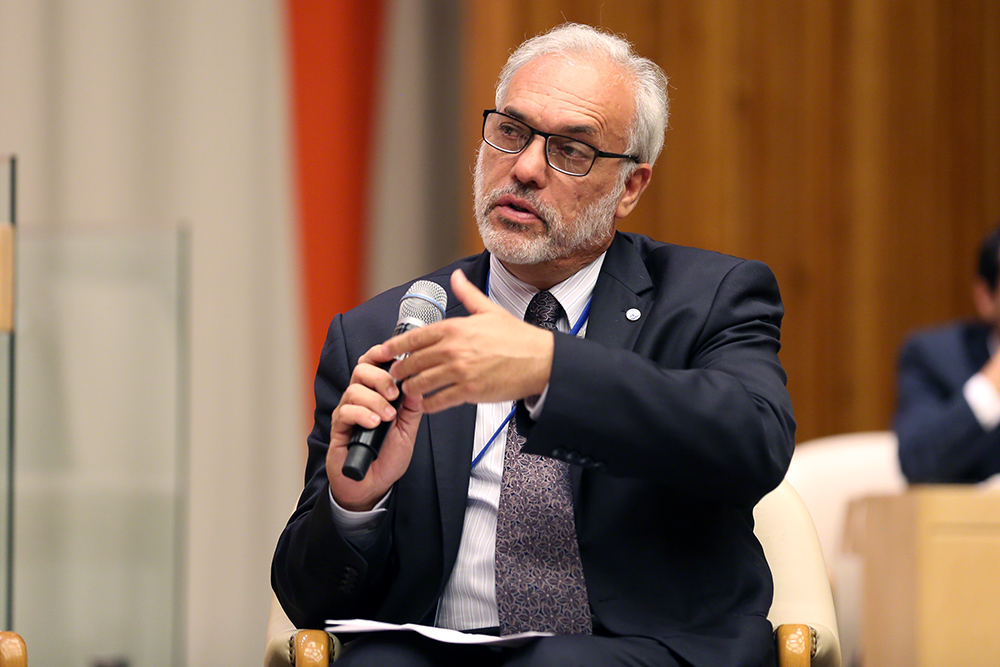
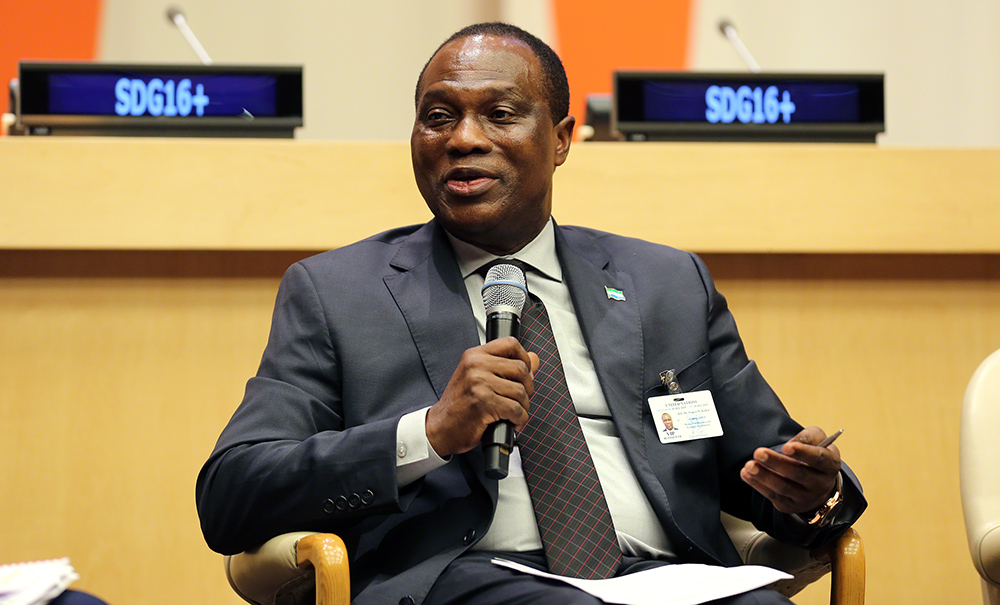
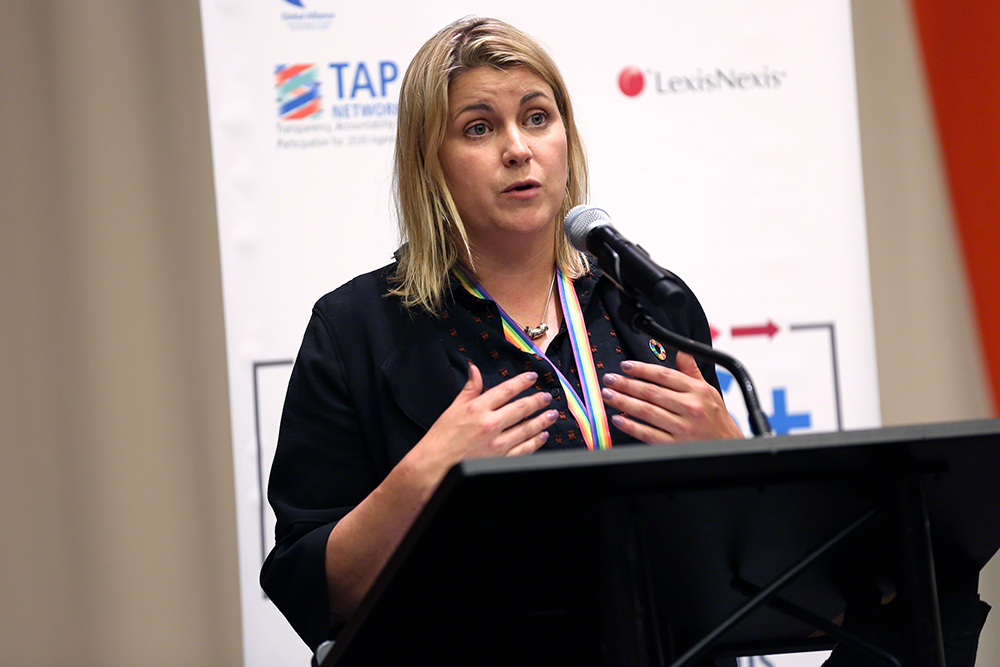
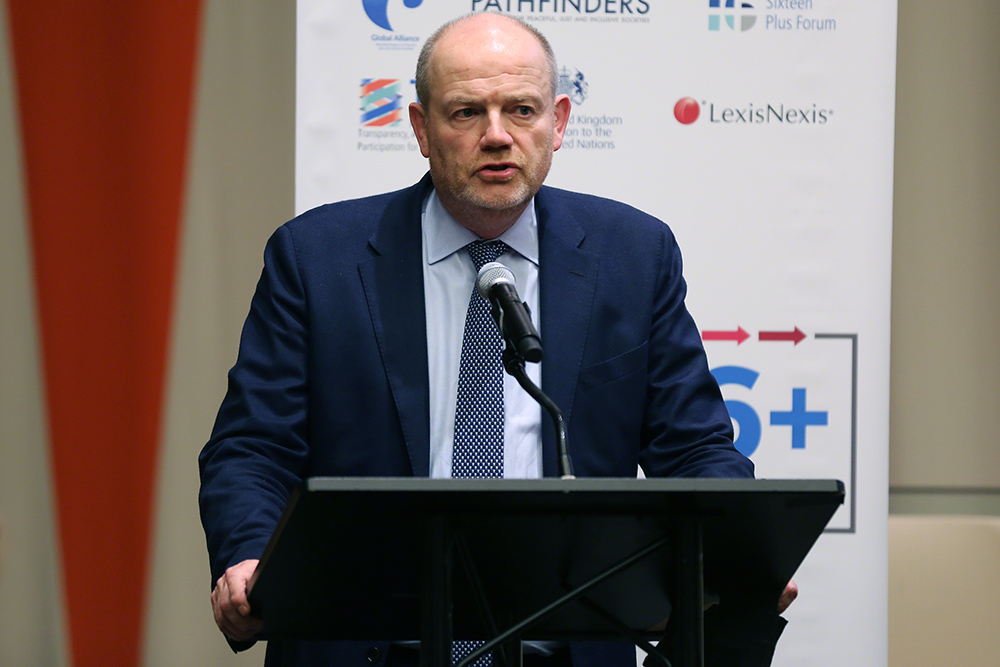
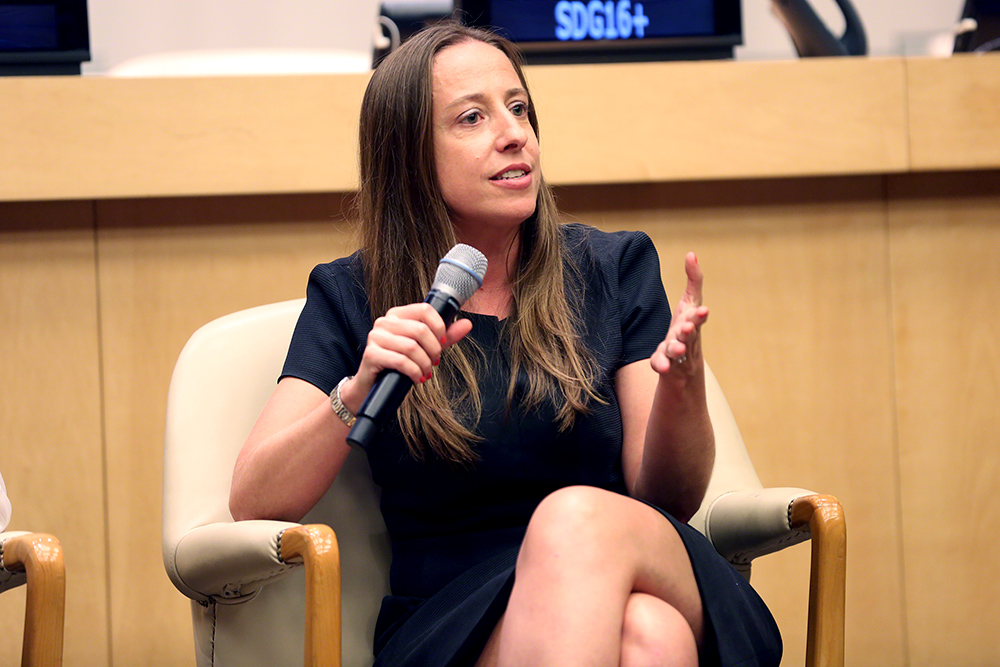
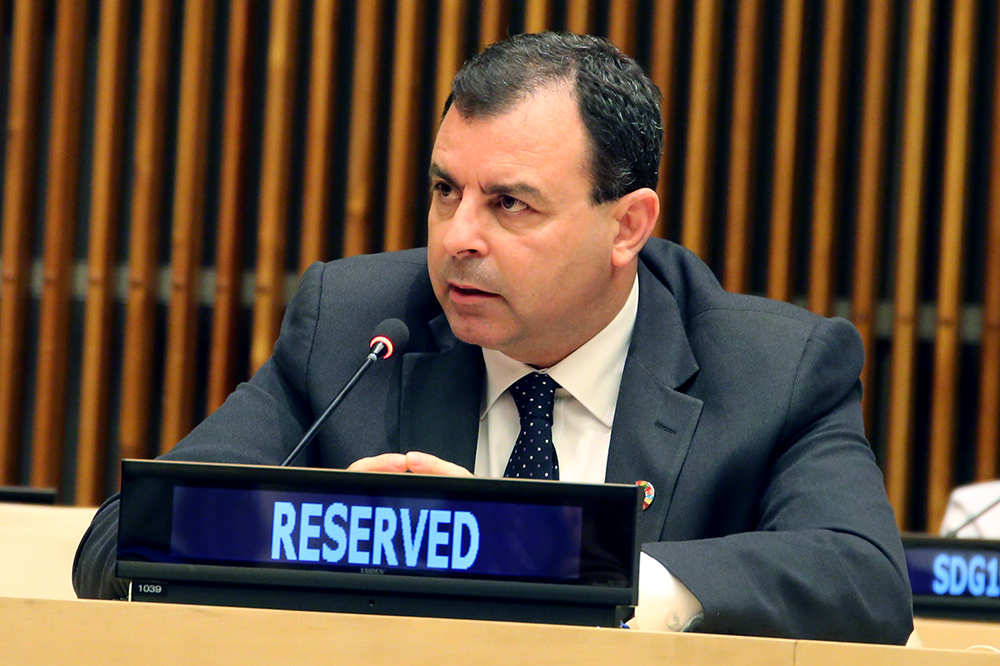
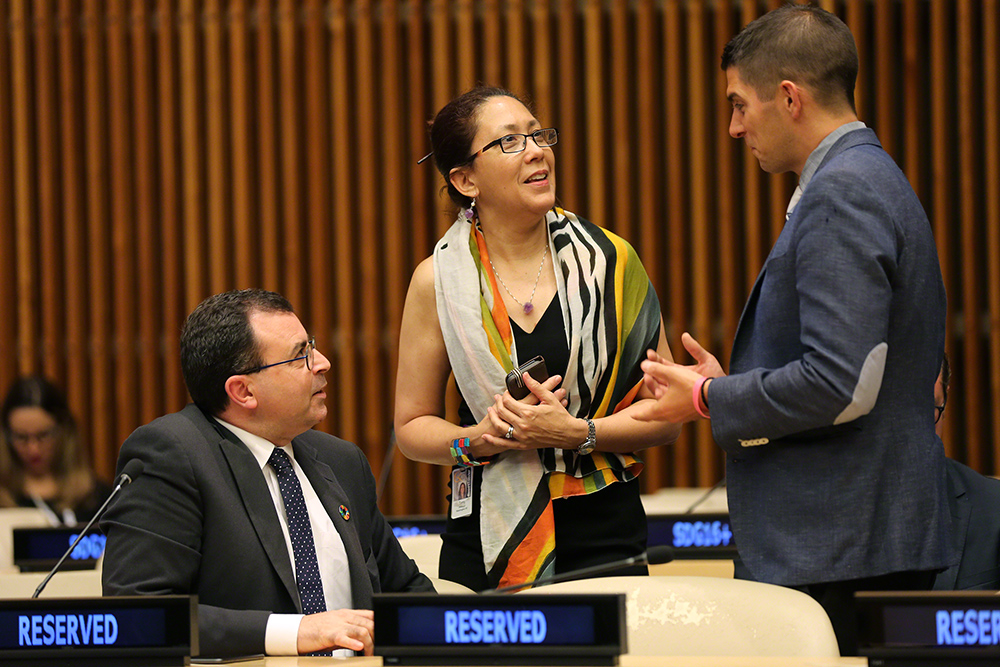
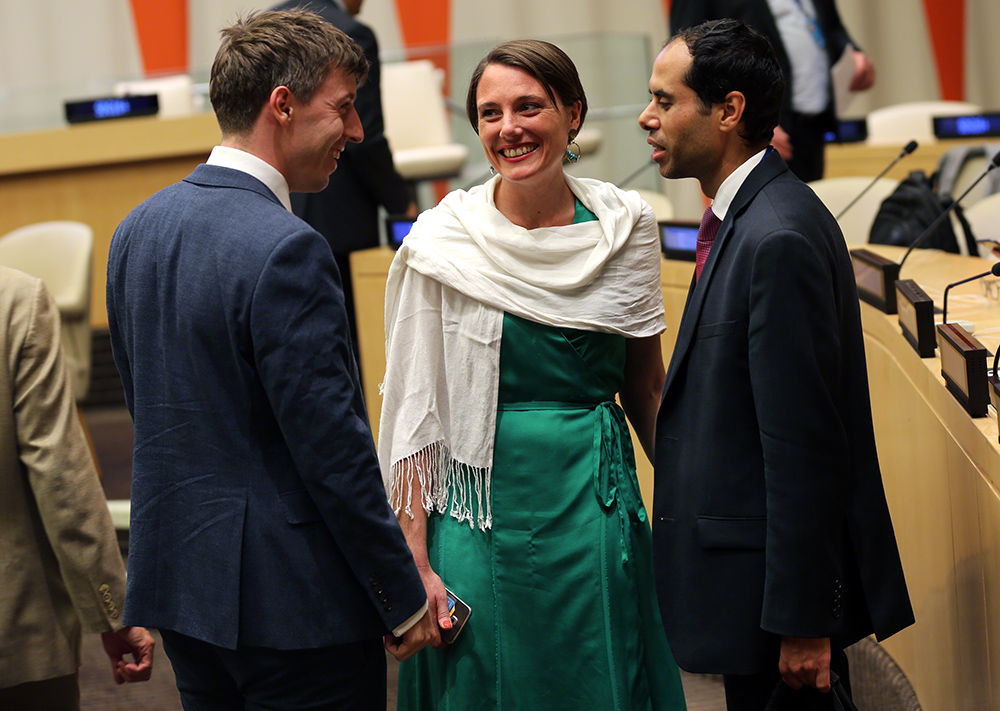
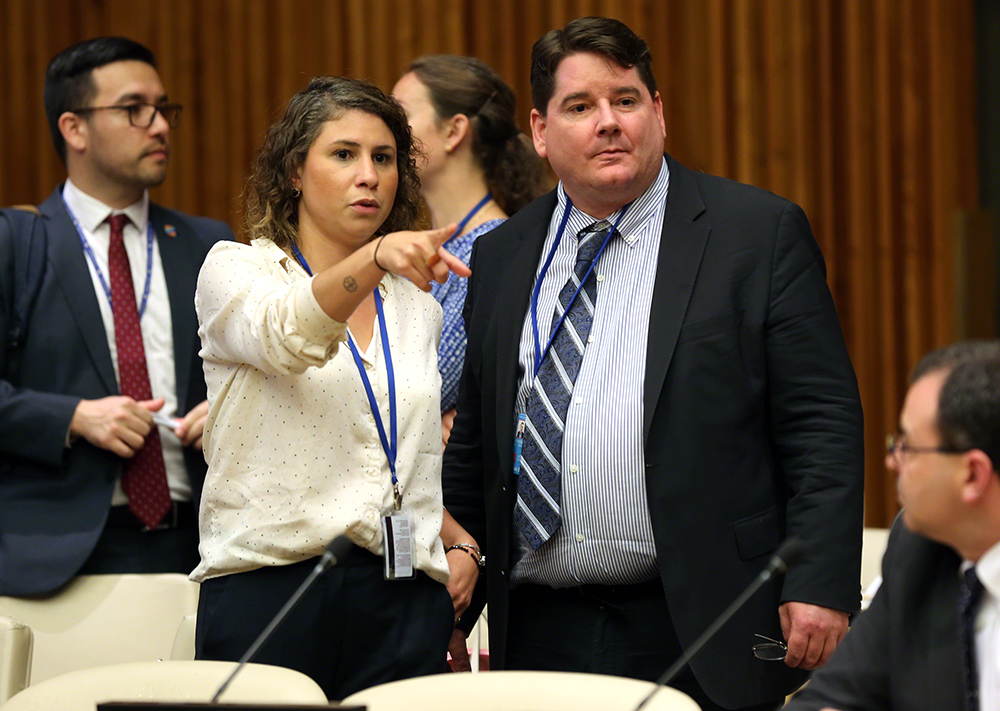
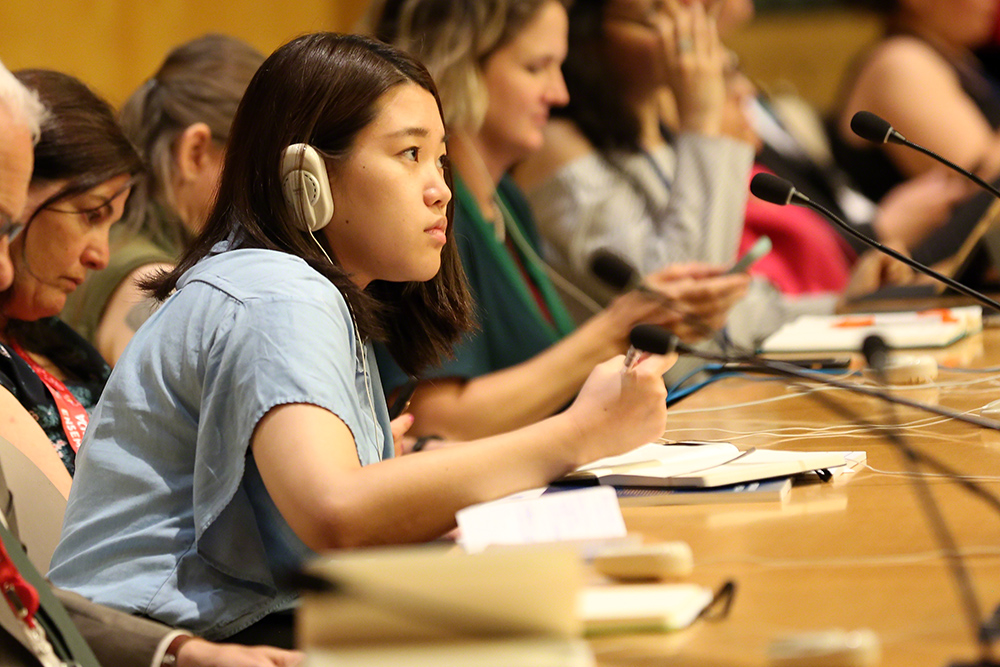
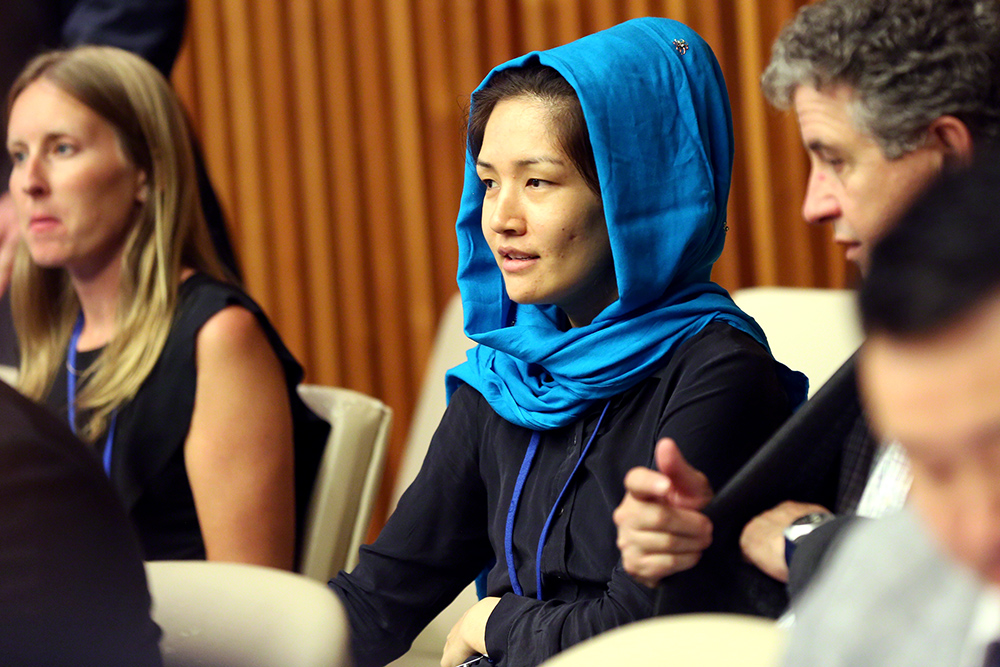
Building Climate Actions in Mountains
Presented by the Principality of Andorra, Switzerland, the UN Food and Agriculture Organization (FAO) Mountain-Partnership Secretariat
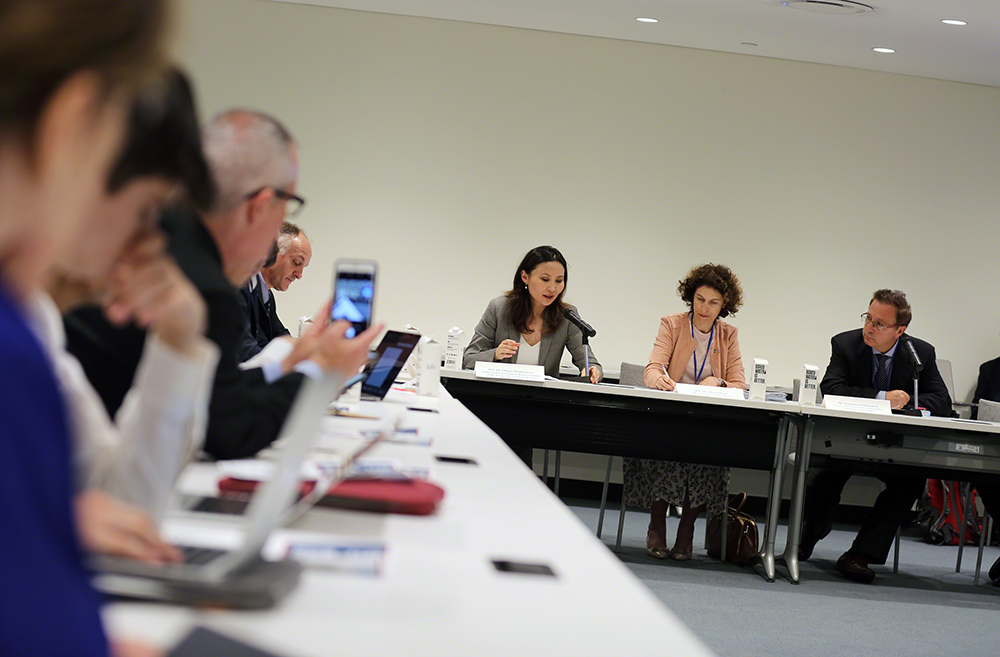
Key messages:
- Mountain ecosystems are home to more than one billion people, nearly 15% of the world’s population, and provide essential services, notably water regulation, for downstream areas;
- People living in mountain regions are among the world’s poorest; and
- Restoring mountain ecosystems, adopting climate sensitive agricultural practices, reducing mountain people’s exposure to climate risks and strengthening their adaptive capacity are essential to achieving the goals of ending poverty, zero hunger, clean water, clean energy, economic growth, and reducing inequalities.
The event had the following main objectives: advocate for pro-mountain climate change adaptation policies; report on the Framework for Action for implementing mountains in the 2030 Agenda; encourage international commitment for climate adaptation and disaster risk management; and build alliances and better data to promote the role of mountains “as the world’s water towers.”
Event Summary:
Grammenos Mastrojeni, Ministry of Foreign Affairs, Italy, moderated the event.
Maria Ubach, Minister of Foreign Affairs, Andorra, called for more international cooperation to combat the effects of climate change in mountains, given that the degradation of mountains, notably linked to the effects of climate change, are compromising the livelihoods of vulnerable populations.
Mirgul Moldoisaeva, Permanent Representative of the Kyrgyz Republic to the UN, noted that mountains are one of the most vulnerable ecosystems in the world with high poverty rates and food insecurity. She emphasized that droughts, earthquakes, and landslides are effects of climate change that weaken the well-being of mountain populations, proposing the establishment of an informal group of Friends of Mountainous countries to join forces to achieve economic prosperity and environmental sustainability for all.
Jacques Ducrest, Federal Council for the Agenda 2030, Switzerland, mentioned the importance of sustainable agriculture; food security, resilience to climate change; disaster risk reduction, integrated resource management, sustainable use of biodiversity and forests to achieve the Sustainable Development Goals (SDGs). He stressed that only sustainable mountains and sustainable agricultural practices can enable the achievement of the SDGs and recommended more attention to climate smart solution in mountains, given that these ecosystems are relevant carbon sinks.
Josep M. Casals Alis, Ministry of Environment, Agriculture and Sustainability, Andorra, reported actions to build the resilience of people living in mountains, highlighting: agroecology, research on new adapted crops to dry conditions, and adoption of a new legal framework to reinforce the agricultural sector, while ensuring food safety.
On drivers of mountain degradation, Lucas Tavares, Liaison Officer in New York-FAO, noted land degradation and unsustainable use of natural resources. He suggested the use of agroforestry, as well as the combination of innovation and traditional knowledge to promote sustainable mountains. He called for actions beyond the agriculture arena, drawing attention to the agendas of health, education, access to energy, and infrastructure roads.
Yoko Watanabe, Global Environment Facility-Small Grants Programme (GEF-SGP), UN Development Programme (UNDP), noted the importance of community empowerment in sustainable projects, underscoring that addressing poverty-environment nexus is essential for achieving the SDGs. In this context, she announced the launch and implementation of a joint initiative between GEF SGP and Mountain Partnership in supporting communities on improvement of value chains and entrepreneurship on mountain products to ensure long-term environment and socio-economic benefits for local communities.
Paul Egerton, World Meteorological Organization (WMO) Representative to the UN, advocated for further inclusion of mountains in the SDGs debate, considering the growing number of vulnerable populations living in these ecosystems. He recommended focusing on better early warning observation systems and announced the WMO’s decision to host the High Mountain Summit in October 2019.
Giogio Grussu, FAO Mountain-Partnership Secretariat, noted that the Partnership currently has 370 members, of which 60 are governments. He emphasized that the Agenda 2030 must be implemented “at all levels” and that engaging with civil society is the only way to make this Agenda a success.
In the ensuing discussion, participants reflected on the need to be more vocal about the importance to act on mountains and climate change, as well as to raise funds to support this issue. Participants also noted the negative impact of landslides, which is displacing people from mountains, and the importance of not adding the burden of product certification on farmers when developing projects on sustainable agriculture.
Event conclusions:
Mountains provide 60-80% of all freshwater of our planet and 50% of the word’s population relies on its ecosystem services. The discussion demonstrated that mountains are key ecosystems, providing goods and services to the planet and supporting the livelihoods of a vast number of people. Panelists called for more “mountain visibility” in international debates and urged countries to support funding for addressing the challenge of climate change in mountains.
Why Does it Matter:
Global changes are disrupting local mountain economies and pushing mountain people to abandon the land. Sustainable agriculture must be promoted and supported, which helps to empower communities and ensure inclusiveness, while supporting the implementation of key SDGs, notably related to climate, quality, food security, and justice.
